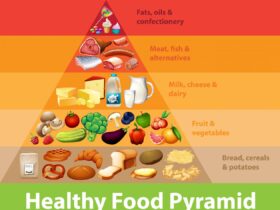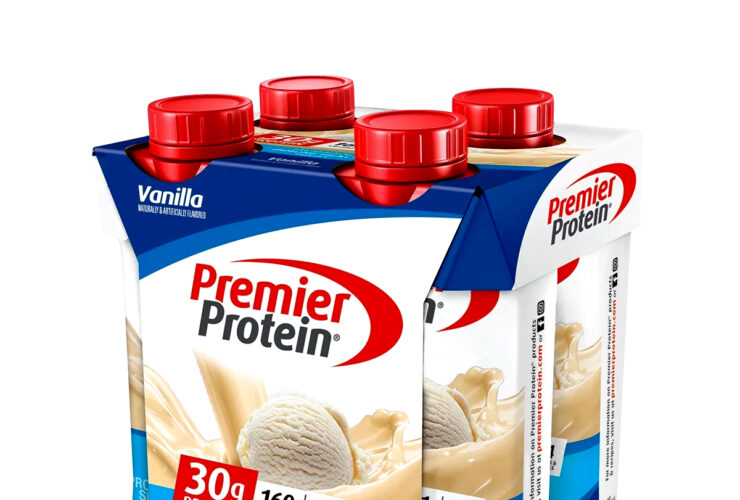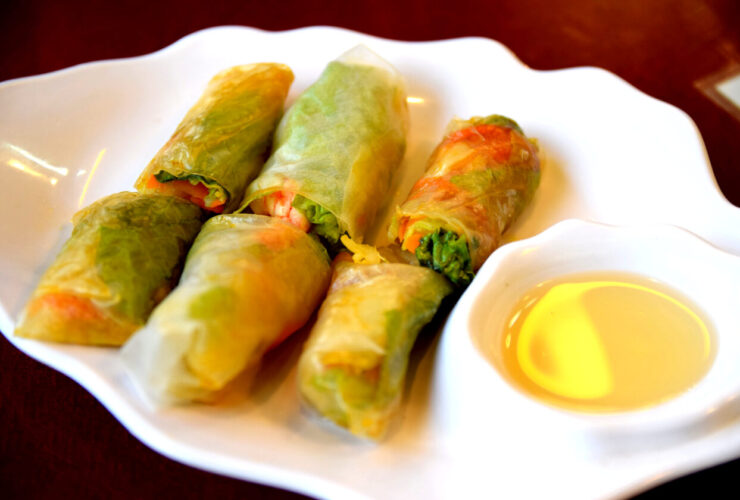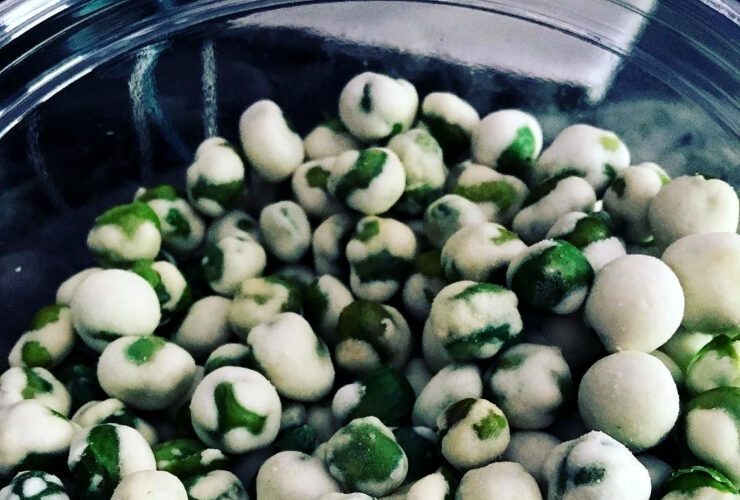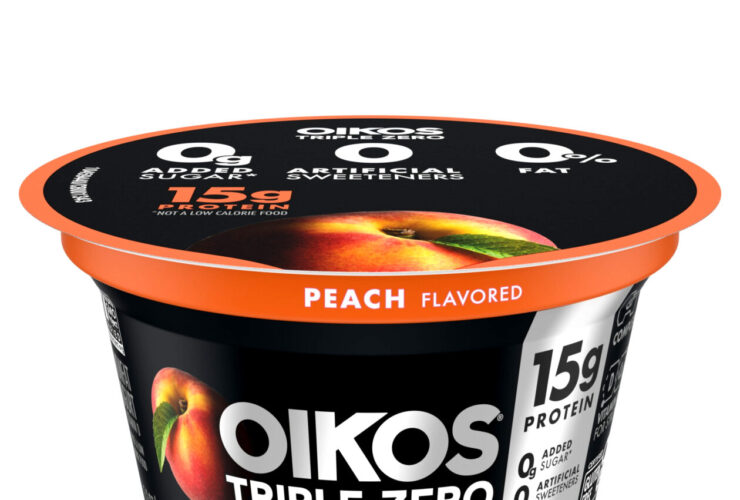Introduction
Ginger, celebrated for its vibrant flavor and myriad health benefits, is a cornerstone in culinary traditions worldwide. From ancient healing practices to modern gourmet cuisine, its versatility knows no bounds. However, amidst its many applications, the question arises: Can You Reuse Ginger After Boiling It? This query delves into the sustainable and practical utilization of ginger, offering insights into maximizing its flavor and nutritional value while minimizing waste.
Ginger’s journey from root to cup involves a transformative process: boiling extracts its essence, infusing liquids with its distinct aroma and taste. By understanding the potential of reused ginger, we embark on a culinary adventure that enhances our dishes and promotes mindful consumption. In this exploration, we uncover the secrets of repurposing boiled ginger, harnessing its potency to elevate our culinary creations to new heights of flavor and sustainability.
Understanding Boiled Ginger
Boiling ginger root is transformative, unlocking its potent flavors and essential nutrients. When ginger root undergoes boiling, its aromatic oils and bioactive compounds infuse into the surrounding liquid, creating a flavorful and nutrient-rich infusion. However, the key lies in the proper preparation, starting with selecting fresh ginger root. Opt for firm, smooth roots free of mold or blemishes, ensuring optimal quality and taste. Once selected, thorough washing and careful slicing of the ginger root are essential steps to maximize flavor extraction during boiling. By paying attention to these preparatory details, individuals can harness the full potential of boiled ginger, creating versatile infusions that elevate culinary creations while reaping its nutritional benefits.
Can You Reuse Ginger After Boiling It?
Direct Answer: Absolutely, boiled ginger can serve as a versatile ingredient, offering an array of culinary possibilities beyond its initial use. Once ginger has been cooked, it doesn’t lose its flavor or nutritional value entirely. Instead, it infuses the boiling liquid with its essence, creating a potent ginger-infused liquid that can be repurposed in numerous ways. This means you can reuse boiled ginger to extract maximum flavor and nutrients, making the most of this aromatic root.
Exploration of Benefits: Reusing boiled ginger offers several benefits beyond the kitchen. Firstly, it’s a practical way to minimize food waste, as you utilize every part of the ginger root to its fullest potential. Additionally, repurposing boiled ginger saves time in meal preparation, as you’ve already gone through boiling and extracting its flavors. From a health perspective, boiled ginger retains many beneficial properties, including antioxidants and anti-inflammatory compounds, making it a valuable addition to various dishes and beverages.
Reusing Boiled Ginger: Reusing boiled ginger presents culinary possibilities beyond flavor enhancement. Whether infused into refreshing beverages like iced tea or kombucha, adding depth to savory dishes such as soups and curries, or incorporated into homemade remedies like soothing syrups or digestive tonics, boiled ginger offers versatility and nutrition. Additionally, it can be blended with other herbs and spices to create custom tea blends, providing unique flavors and potential health benefits. With some creativity, boiled ginger can become a staple ingredient, elevating everyday meals and beverages with its distinct taste and nutritional value.
Creative Ways to Reuse Boiled Ginger
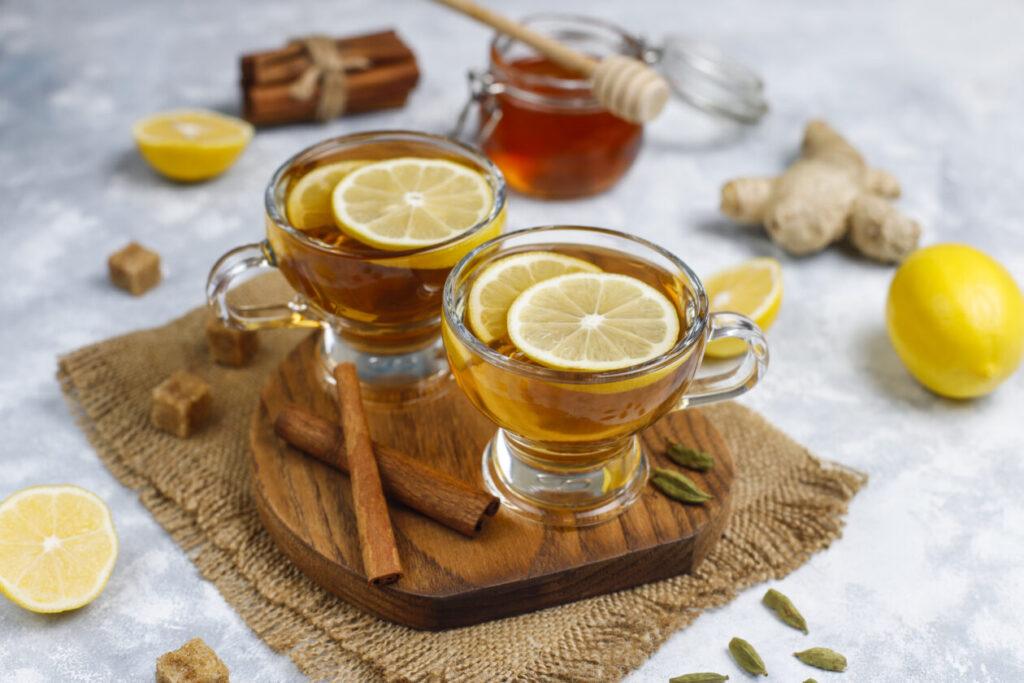
Ginger, once boiled, transforms into a versatile ingredient that extends far beyond its initial use. Here, we explore innovative ways to breathe new life into boiled ginger, maximizing flavor and nutrition.
Ginger Infused Beverages
Quench your thirst with invigorating ginger-infused beverages that tantalize the taste buds and offer a refreshing twist to your hydration routine. From chilled iced tea to zesty lemonade and effervescent sparkling water, boiled ginger is the perfect flavor base, infusing your drinks with its distinctive warmth and aroma. Experiment with different combinations and ratios to tailor the flavor intensity to your liking, creating personalized beverages that invigorate the senses.
Enhancing Culinary Creations
Elevate your culinary repertoire by integrating boiled ginger into various savory dishes, elevating them to new heights of taste and complexity. Whether you’re crafting hearty soups, sizzling stir-fries, or succulent marinades, boiled ginger adds a depth of flavor that harmonizes with a diverse range of ingredients. Embrace experimentation and culinary creativity as you explore the endless possibilities of incorporating boiled ginger into your favorite recipes, transforming ordinary meals into extraordinary culinary experiences.
DIY Ginger Remedies
Harness the healing properties of ginger by incorporating boiled ginger into homemade remedies designed to promote wellness and vitality. From soothing ginger syrup to comforting ginger-infused honey, boiled ginger is a potent ingredient that alleviates ailments and supports overall health. Whether seeking relief from a sore throat or aiming to aid digestion, these DIY ginger remedies offer a natural and effective solution, empowering you to take control of your well-being in the comfort of your kitchen.
Flavorful Tea Blends
Indulge in the soothing tea-making ritual by crafting custom blends featuring the distinctive flavor of boiled ginger. Pairing ginger with complementary herbs and spices allows you to tailor your tea blends to suit your preferences and address specific wellness goals. Whether you’re seeking relaxation or immune support, blending boiled ginger with ingredients like mint, lemon, or turmeric offers a delightful fusion of flavors that rejuvenates both body and soul. Embrace the art of tea blending and discover a world of flavor possibilities with boiled ginger as your guiding star.
Storage and Preservation
After boiling ginger, storing any leftovers properly is essential to maintain freshness and flavor for future use. Refrigerating boiled ginger in airtight containers is a simple and effective way to preserve it for several days. This method helps prevent the ginger from absorbing odors from other foods in the fridge while keeping it fresh and ready to use in your culinary endeavors. Consider freezing boiled ginger in ice cube trays for longer-term storage and convenient portioning. By transferring the boiled ginger into the compartments of an ice cube tray and freezing it, you can easily pop out individual portions as needed, minimizing waste and ensuring that you always have ginger on hand whenever inspiration strikes in the kitchen.
Storing boiled ginger properly extends its shelf life and maximizes its utility, allowing you to make the most of this versatile ingredient in your cooking and beverage concoctions. Whether you opt for refrigeration or freezing, ensuring that boiled ginger is stored in airtight containers or sealed bags helps preserve its flavor and nutritional benefits, ensuring that you can enjoy its delightful zing in your culinary creations whenever the craving strikes.
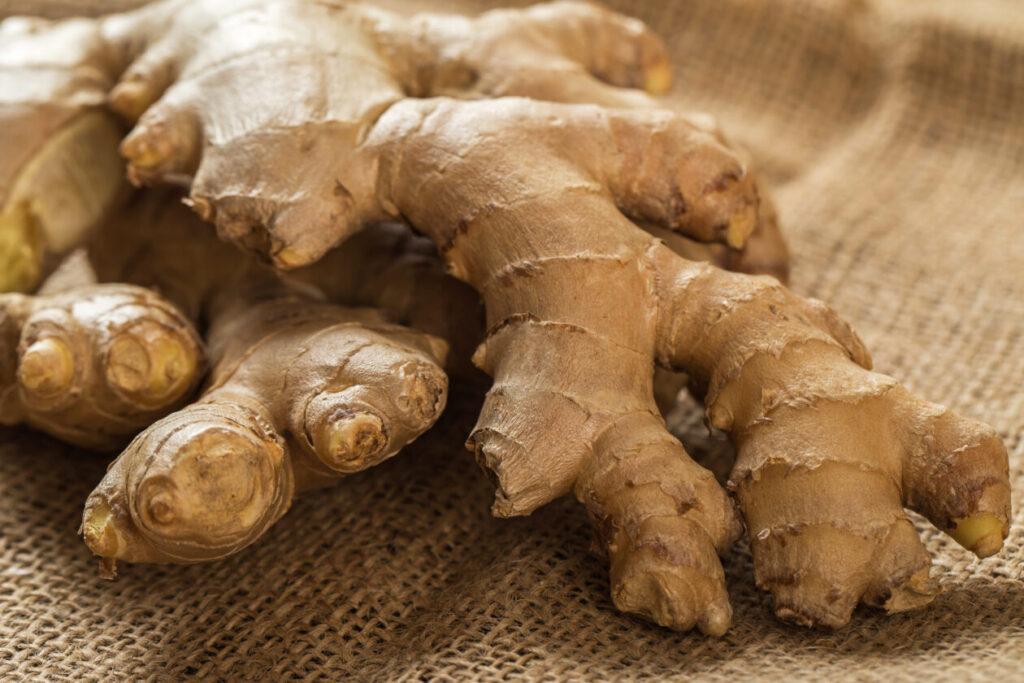
FAQ about Reusing Boiled Ginger
Q: What can I do with leftover boiled ginger?
A: Leftover boiled ginger can be repurposed in various ways. You can infuse flavor into beverages like tea, lemonade, or sparkling water. Additionally, you can incorporate it into savory dishes such as soups, stir-fries, or marinades to enhance their taste and aroma. Leftover boiled ginger can also be used to make homemade remedies like ginger syrup or ginger-infused honey for soothing sore throats or aiding digestion.
Q: Does boiling ginger destroy nutrients?
A: While boiling ginger may lead to losing some nutrients due to heat exposure, it can retain many beneficial compounds. Ginger contains various bioactive compounds like gingerol and shogaol, which exhibit antioxidant and anti-inflammatory properties. While some water-soluble vitamins may leach into the boiling water, ginger still offers health benefits even after being boiled.
Q: Does ginger lose its benefits when cooked?
A: Cooking ginger, including boiling, can alter its chemical composition and potentially reduce the concentration of certain nutrients. However, ginger retains many of its health benefits even after cooking. Compounds like gingerol and zingerone, responsible for ginger’s characteristic flavor and aroma, remain intact and offer antioxidant and anti-inflammatory effects, contributing to overall health and well-being.
Q: How do you preserve boiled ginger?
A: To preserve boiled ginger, refrigerate it in an airtight container for several days. Alternatively, you can freeze boiled ginger in ice cube trays for longer-term storage. Freezing ginger in smaller portions allows convenient use in recipes without thawing the entire batch. Proper storage helps maintain the flavor and freshness of boiled ginger for future use.
Q: How many times can you reuse ginger?
A: The number of times you can reuse ginger depends on preference and the desired flavor intensity. Generally, ginger can be reused once or twice after boiling to extract its flavors effectively. However, the strength of the ginger infusion may decrease with each subsequent use. Experimentation with steeping times and the amount of ginger used can help achieve the desired flavor profile.
Q: Is it OK to drink boiled ginger every day?
A: Drinking boiled ginger regularly can be part of a healthy diet for many people. Ginger offers various health benefits, including aiding digestion, reducing inflammation, and boosting the immune system. However, consuming ginger in moderation is essential, as excessive intake may lead to digestive discomfort or interactions with certain medications. Consulting with a healthcare professional can provide personalized guidance on incorporating ginger into your daily routine.
Q: How many times can you reuse ginger in tea?
A: You can reuse ginger multiple times when making tea, adjusting the steeping time and the amount of ginger based on your taste preferences. Ginger can infuse flavor into tea for up to two or three uses after boiling. However, the intensity of the ginger flavor may diminish with each reuse. Adding fresh ginger or other complementary ingredients can help maintain the desired taste in subsequent batches of tea.
Q: Is ginger better boiled or raw?
A: Both boiled and raw ginger offer distinct flavor profiles and health benefits. Boiling ginger allows you to extract its flavors and incorporate them into various dishes and beverages. Boiled ginger can be helpful for infusing flavor into soups, sauces, or teas. On the other hand, raw ginger provides a sharper and more intense flavor, making it suitable for dishes where a fresh and spicy kick is desired. Depending on the recipe and personal preference, boiled and raw ginger can be valuable additions to your culinary repertoire.
Conclusion
In conclusion, the practice of reusing boiled ginger offers a myriad of benefits, both in culinary endeavors and home remedies. By boiling ginger, you can extract its rich flavors and potent nutrients, creating a versatile ingredient that can elevate a wide range of dishes and beverages. Boiled ginger opens up a world of culinary possibilities, from adding a zesty kick to stir-fries and soups to crafting soothing teas and remedies for digestive discomfort.
I encourage you to explore the endless creative opportunities that boiled ginger presents. Experiment with different recipes, blending ginger-infused liquids into refreshing beverages or incorporating chopped ginger into savory dishes for added depth of flavor. Share your experiences and innovative uses of boiled ginger with others, fostering a community of culinary enthusiasts eager to harness the full potential of this remarkable ingredient. Together, let’s embrace the versatility of boiled ginger and elevate our culinary creations to new heights.
References
Mao, Q., Xu, Y., Cao, Y., Gan, Y., Corke, H., Beta, T., & Li, B. (2019). Bioactive Compounds and Bioactivities of Ginger (Zingiber officinale Roscoe). Foods, 8(6). https://doi.org/10.3390/foods8060185
Axe, Dr. 2021. “Ginger Water Benefits + How to Make It.” Dr. Axe. October 4, 2021. https://draxe.com/nutrition/ginger-water/.
Ruchi Badoni Semwal, Deepak Kumar Semwal, Sandra Combrinck, and Alvaro M Viljoen. 2015. “Gingerols and Shogaols: Important Nutraceutical Principles from Ginger.” Phytochemistry 117 (September): 554–68. https://doi.org/10.1016/j.phytochem.2015.07.012.
Was this helpful?

Joseph Emb, RDN
Founder of StyleVitally.com | Registered Dietitian & Wellness Advocate
What I Cover:
I’m passionate about connecting nutrition science and everyday wellness to help people live healthier, more vibrant lives. I write about evidence-based nutrition, mindful eating, sustainable lifestyles, and holistic well-being at StyleVitally.com.
My Background:
The University of Texas in Austin, where I earned my Dietetics diploma, laid the groundwork for my nutrition and health career. My training and hands-on experience taught me the science and art of using nutrition to enhance health and well-being.
Professional Journey:
I’m an RDN with lots of experience. I’ve helped people seeking tailored nutritional recommendations in clinical settings and community outreach programs. My constant learning and professional development ensure that my recommendations are always based on the latest evidence.
Ethical Commitment:
My practice prioritizes integrity. My content is transparent and objective, following the most significant ethical standards. I can give my audience unbiased advice because I’m not affiliated with food businesses or industry associations. I want to help people make informed health decisions that match their values and ambitions.
Join Me on the Wellness Journey:
Join me on the path to vitality and well-being, whether facing nutritional issues, seeking sustainable lifestyle changes, or simply wanting a better, happier you. We’ll discover how diet, mindfulness, and holistic well-being can maximize your potential.



